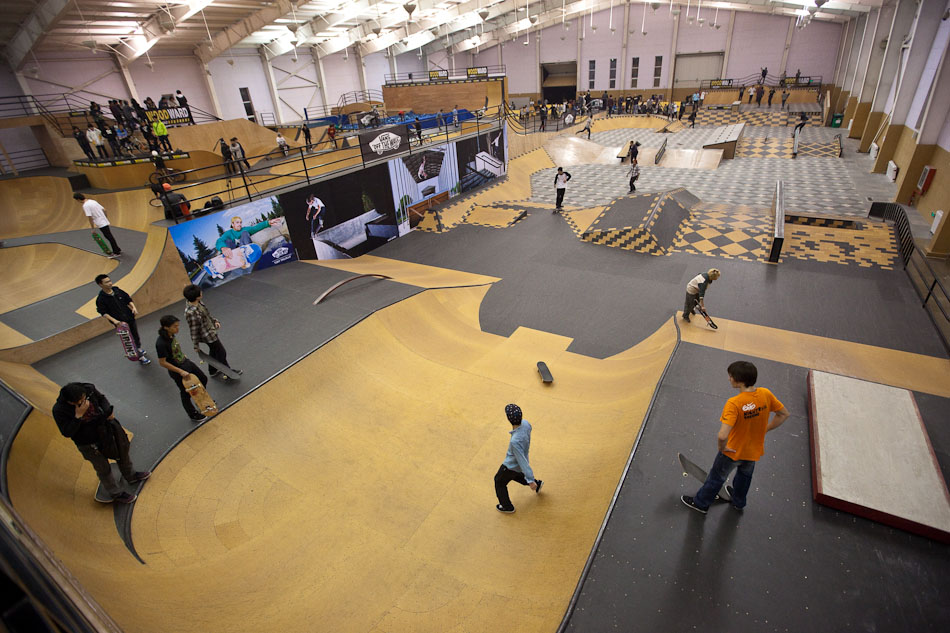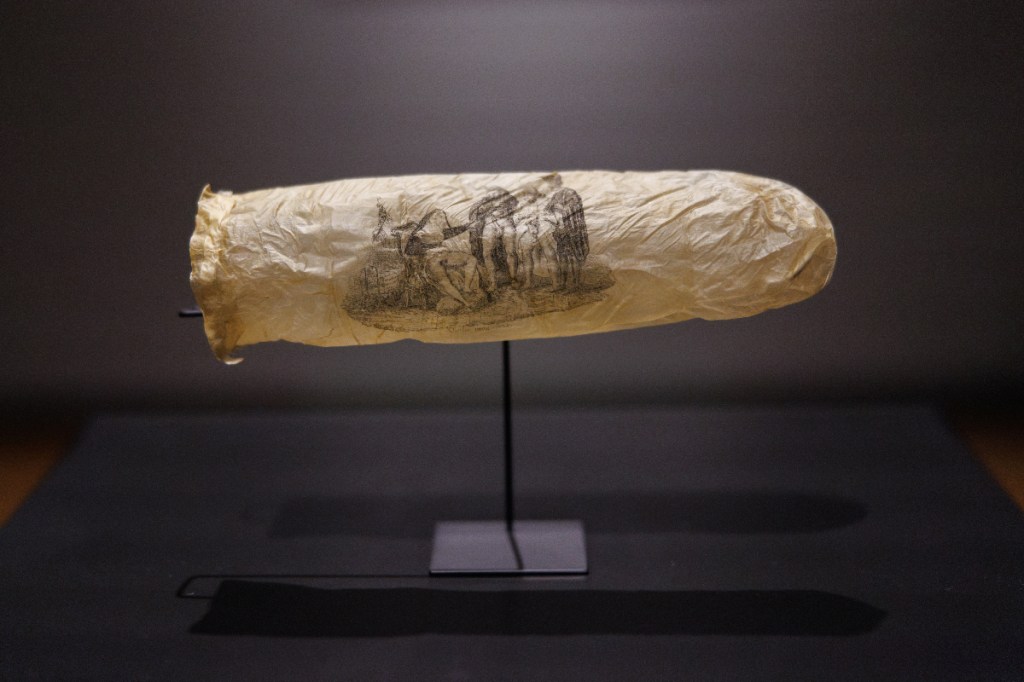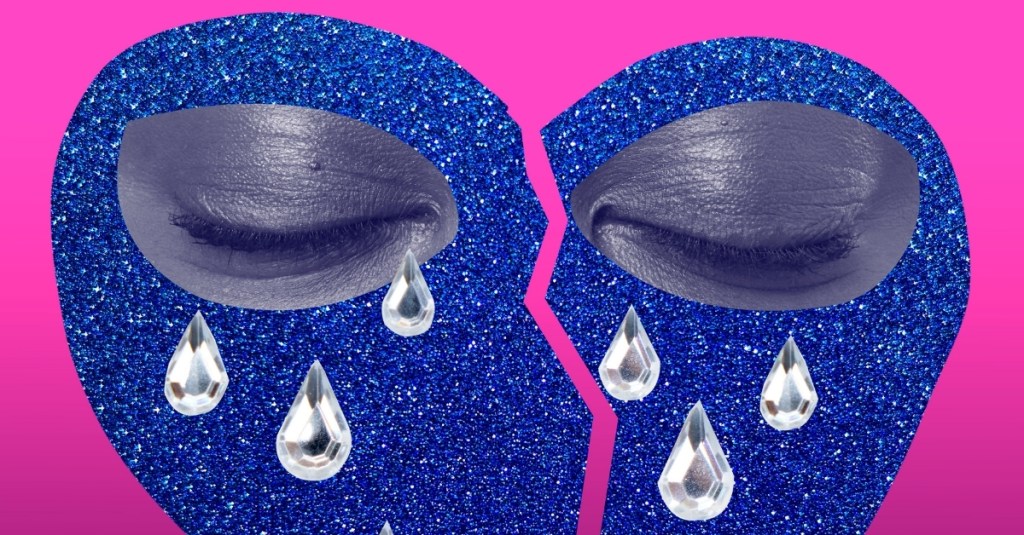Growing up, I learnt everything I knew about skateboarding on Saturday afternoons ‘down the park’, where I’d drink cheap, flat and illegally-obtained cider and watch my friends fail to complete basic tricks on disparate patches of tarmac. Which is to say, I learnt and know very little about the world of skateboarding, although I always felt I was a great loss to it as I have completed Tony Hawk’s Pro Skater 2 at least four times. I am even more ignorant of China, the world’s most populous country, my experience of which has been confined to a series of all-too-brief food highs derived from a list of gooey sauces. This in mind, it seemed reasonable to embark on a superficial and misguided investigation into the Chinese skating scene.
Luckily, I found Curt Shi. Curt was a mainstay among the first generation of skaters in China in the 1990s. He’s since gone on to become a successful investor and businessman with a large stake in anything Chinese that involves four wheels and a board. He represents the international Maloof brand in his home nation, and makes more money off mobile phones and promoting social networks. He’s basically a Chinese Alan Sugar kickflipping for Communist capitalism. I spoke to him.
Videos by VICE

Curt Shi, skater and money enthusiast.
VICE: Hi Curt, this is Josh from VICE. Are you good to talk?
Curt: Hi Josh, yes I am.
You’re in Beijing at the moment, right? Is that where you’re from originally?
I was born in Jiangsu Province of China, but I’ve lived in Beijing for more than ten years and my current home is here in Beijing. I actually emigrated to Australia in the early 2000s, but returned to China around 2005.
When and how did you get into skating?
I started around the early 1990s after watching the movie Gleaming the Cube, which is an American film that came out in 1989 about a 16-year-old skateboarder. Pretty much all the Chinese skateboarders of my generation started because of that movie.
How did skateboarding come to China?
Everyone says that a Japanese teacher at Beijing Sport University first brought skateboarding to China around the end of the 1980s, although it’s difficult to confirm.
So it’s not rooted in a street culture, like in the West?
No, not really. It’s more like an alien culture. Very similar to kung fu in the Western world.
That’s an interesting comparison. How did the scene progress?
An American-Chinese guy opened a company selling Powell-Peralta products. Then they held the annual Powell Cup competition in China from around 1994 to 1999. That was really cool, because at that time these kind of things were really rare in China and this is not typical with China’s national sport system. All sports in China are similar to the previous Soviet Union, everything should be associated with the government. But this thing happened in a different way. They even invited Steve Caballero and Danny Wainwright from the UK to China in 1994. Then in 1997 they invited Mike Vallely, one of my heroes, and a few others.
The boys in blue and skaters over here haven’t always got along. Do skaters ever run into trouble with the police in China?
In China the relationship between cops and skateboarders is not that bad. Only in a limited number of public domains and areas, in big cities like Shanghai and Beijing, could you find ‘No Skateboarding’ tags or skateboarding stopper facilities. China is growing so quickly, and skating’s still relatively new here, so the pedestrians don’t really mind all that much yet. Also, in China there are not so many patrol policeman out on the street.
How do Chinese skaters view skating in the West?
Most Chinese skaters see the West as the Mecca of skateboarding. But they don’t know the exact situation, like with cops and skaters’ relationships – most aren’t that aware.
What do you think is the main thing about Chinese skating culture that differs to skating in the West?
There are a lot of differences. In the West, it’s deeply rooted in surfing and street culture and well connected to the lifestyle and values of urban youth. But in China, this has only started to evolve in the last ten years. It’s more like a fashion than a lifestyle.
I see, like the yo-yo or something. Does everyone who likes the fashion skate, or are there poseurs?
Nearly 30% of the market is skateboarders. But the other 70% are just family members or girlfriends or whatever. Also, China is still a developing country, and a lot of young people still lack spare time and don’t have enough disposable income to partake in the culture. In the main, kids are still more focused on scholastic performance and how much money they make, which is a little bit weird when you consider that the parks we do have are a lot better than those in the US or UK, for instance.

Woodward skatepark in Beijing
How big is skateboarding in China, in terms of numbers?
I would say we have less than 50,000 active skateboarders.
That doesn’t seem like many. Is it quite expensive?
Not so much as before, when we first started it was really, really expensive. Nowadays China is developing so quickly that a lot of people are getting rich, and this is not such a big problem [laughs].
Haha, that is funny. What does the government think about all this skateboarding lark?
We have not seen anti-skateboarding campaigns from the government, because it’s still a minority sport, it’s basically ignored. The Chinese government still cares more about the Olympic games and other major events that bring more brand impact to the country.
Do you think the government would have a problem, if it became more popular?
Could be, but if skateboarding could go into the Olympic games then China will promote it definitely, they would have a national team.
What about those nagging old people?
There was a time when baggy jeans were very popular in the skateboarding circle. I remember one day I was in Shanghai in a supermarket with some skateboarding friends and one of my friends was wearing very loose baggy jeans with underwear showing outside. An old grandma was coming up to him to say, “Boy, you really need to tighten your belt!” She was really serious. Ahahaha! Everybody was quite embarrassed at the time. It’s difficult to explain, the grandma was in her 70s or 80s.

Tony Hawk showing off at Woodward
What are the demographics, who are skaters in China?
People who like Western culture and street culture, and also a lot of people who started overseas and came back to China. There are a lot of ex-pats who are active in skateboarding in China. Do you skate?
No. I am literally the least qualified person in the world to be asking questions about skateboarding culture.
OK. Well there are a lot ex-pats skateboarding in China. I still remember in the early days, in the 1990s, we would ask everyone we met from the States if they skated or not. Now we realise it’s obvious: not everybody from the States skates.
I can’t speak for the US, because I’m not from there, but I imagine what you’re talking about is similar to how most people my age grew up believing that all Chinese people had a black belt in kung fu. How did you become involved in the commercial side of skateboarding?
To me, it’s very natural. I simply wanted to use my expertise and experience in skateboarding and the broader action sports industry. This is why I’m representing the Maloof Money Cup in China.
The ‘Maloof Money Cup’? That doesn’t sound very countercultural…
It’s certainly true without mature and developed commerce the whole sector will not see fundamental changes…[tails off into long ramble about commerce]… but it’s perhaps not very sexy to talk about the business of skateboarding.
Agreed, let’s try something sexier. What about music. Is there a genre of music that’s closely associated with skating?
Not really, although the skate scene in Wuhan is sometimes associated with the punk scene. Wuhan is usually dubbed as a “punk rock metropolis” of China.
What’s the future for skateboarding in China?
The market potential is still huge, and as China continues to evolve very quickly, I do think there will be investment opportunities in the sector. I think we will have a Chinese Jamie Thomas or Tony Hawk soon.
Do you worry that it will become too popular and get hijacked by the government?
I don’t worry about that, I hope it will become more popular, that more and more people get into the lifestyle. Of course, there are concerns from government that arise, but I think basically it will be a good thing if more people get into it.
OK. Well thanks for talking to me Curt. I certainly know a lot more about Chinese skateboarding than I did ten minutes ago.
You’re welcome. Bye!
More
From VICE
-

Photo by Rijksmuseum/Kelly Schenk -

Photo by Tibor Bognar via Getty Images -

De'Longhi Dedica Duo – Credit: De'Longhi -

We Are/Getty Images